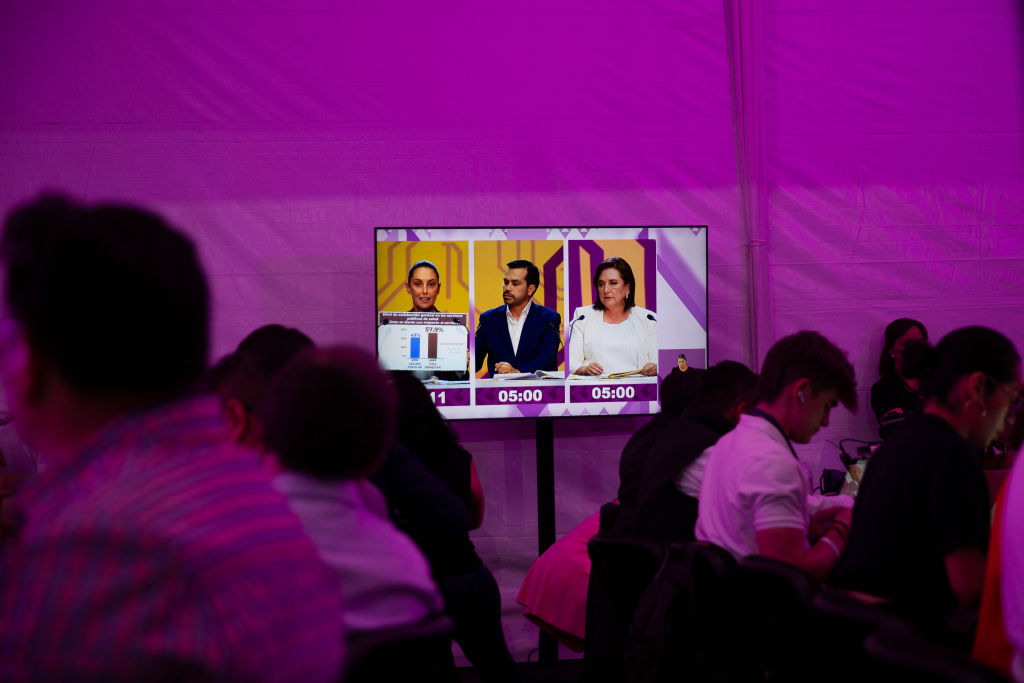Haiti's Presidential Vote Marred by Controversy
Haiti's Presidential Vote Marred by Controversy
Tainted by fraud allegations, Haiti's November 28 election was rejected by a majority of the presidential candidates. But, with results slated for December 7, the UN cautioned Haiti's political parties and voters to wait for the official outcome.
Updated December 2 - Haitians won’t know the results of the November 28 presidential vote until next week, but even then the outcome may be shrouded in controversy. No fewer than 12 presidential candidates rejected the election as fraudulent before the polls even closed. Meanwhile proceedings were described as chaotic and marked by inefficiency. Results are slated for December 7 at the earliest, with a final tally expected on December 20. Even if calls to cancel the election go unheeded, the results may not be decisive; a runoff would take place January 16 if no candidate wins the requisite 50-percent-plus-one portion of votes in the first round. Voters cast ballots not only for President René Préval’s successor, but also for 11 of 30 seats in the Senate and all 99 seats in the Chamber of Deputies to govern a country beset by a cholera outbreak and still dealing with the repercussions of January’s massive earthquake.
Given concerns about election-related instability, the UN Stabilization Mission in Haiti (MINUSTAH) cautioned against relying on reports of unofficial results before the outcome gets announced come Tuesday. The UN warned on December 1 that the electoral agency "should be granted the time and political stability needed to complete its work, the results of which will then be subject to any eventual dispute from candidates, political parties and the Haitian people through legal procedures for settling the issue." The news release went on to caution: "Quick counts or opinion polls are not an exact science." Previously, Observers such as MINUSTAH and the Organization of American States (OAS) raised questions about the electoral proceedings on voting day, with the UN declaring: “[T]he international community expressed their deep concern at the numerous incidents that marred the elections.” However, the joint OAS-Caricom observer declared late Monday that the election should be allowed to stand, saying: "The joint mission does not believe that these irregularities, serious though they are, should invalidate the elections."
On election day and even as voters cast ballots, a dozen of the presidential candidates took a stand on the vote when they announced: “It is clear that the government of René Préval, in agreement with the (electoral council), is putting into execution the plan hatched to tamper with the elections…with the help of the official political party and its candidate, Jude Celestin.” However, by the following day, candidates' solidarity in opposition began to crumble. Pre-election poll leader and former first lady Mirlande Manigat as well as singer Michel "Sweet Micky" Martelly broke ranks November 29 amid rumors that they were the leaders in the race.
A few sticking points remain. MINUSTAH estimated that roughly 4.5 million voters were eligible to vote at 11,000 polling stations in 1,500 voter districts throughout Haiti. But The New York Times reports that, with services still in disarray because of earthquake destruction, electoral authorities had delivered fewer than half of roughly 400,000 new and replacement identification cards needed to vote. Other media outlets and election observers reported irregularities such as ballot-box stuffing and intimidation. However, Haiti’s Provisional Electoral Council (CEP) called the election a success and indicated it would only recognize and investigate irregularities at 56 of the 1,500 voter districts. As AS/COA Online reported in early November, critics have alleged that the CEP has tight links to the Préval government, calling into question the agency’s independence.
What comes next remains in question as the wait for results continues. The candidates rejecting the vote called on supporters to mobilize in protest, as well as for a transitional government to replace Préval’s and organize a new election. The Miami Herald’s Jacqueline Charles reported from Port-au-Prince Monday about related protests, drawing concern about the onset of violence. But these worries began to fade as news broke that Manigat and Martelly—rather than Préval's choice, Celestin—were the frontrunners who could well face each other in January's runoff vote. An AS/COA hemispheric update offers an overview of the top candidates.
Learn more:
- An AS/COA hemispheric update offers a who’s who of the country’s major presidential candidates.
- AS/COA Online analysis of the cholera outbreak’s impact on elections.
- Website of Haiti’s electoral council.
- Haiti Elections 2010 is a portal with coverage, information about political parties, and candidates.
- The Miami Herald’s Haiti page includes election and earthquake reconstruction coverage.
- Wired.com’s Haiti Rewired community offers liveblogging of the election and ensuing coverage.
- The Huffington Post offers a slideshow of scenes from voting day in Haiti.







